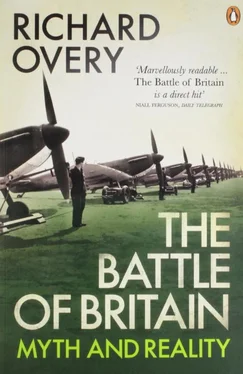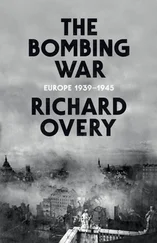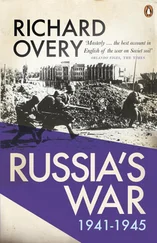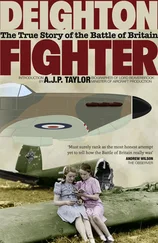The German failure to win air supremacy was beyond doubt by October as the air conflict slowly subsided. Neither side was defeated in any conventional sense. Though the battlefield was littered with the debris of combat, the two fighter forces in October each had around 700 operational aircraft and sufficient numbers of trained pilots to fly them, a balance of forces not very different from the start of the battle. German losses greatly exceeded those of the RAF because of the vulnerability of bombers and dive-bombers. Between 10 July and 31 October the RAF lost 915 aircraft, the German Air Force 1,733. Losses on both sides were soon made good. The outcome was technically a stalemate. British forces had little prospect of re-entering Continental Europe; German forces could not, under present circumstances, invade or occupy Britain.
The public was at first only dimly aware of the significance of the battle they had witnessed day after day, framed against the autumn skies. When Orwell read the official narrative in April 1941, he was surprised by ‘the way in which “epic” events never seem very important at the time’. 21The conflict was not yet presented as the familiar Battle of Britain. When Churchill used the term in a speech in June, he was referring to the whole field of conflict, not simply to the battles of air defence. When the speech was reprinted later in the year, the Battle of France was capitalized, but the ‘battle of Britain’ was not. Park talked about the Battle of London; the army commander-in-chief of Southern Command, General (later Field Marshal) Alexander thought that the heavy night bombing in the winter heralded the onset of what he called the ‘Battle of England’. 22
The lack of any clear sense that a great battle had been won was reflected in the treatment of those who had won it. The fighter aces for the most part remained anonymous because the RAF wanted to avoid the pitfalls of glamorizing a few heroes at the expense of the rest of the force. Once the daylight battles were over, the commanders who brought victory were dispensed with. Throughout the battle a backstairs intrigue was conducted against Newall and Dowding, involving, among others, the veteran airman Lord Trenchard and the Minister of Aircraft Production, Lord Beaverbrook. A whispering campaign against Newall’s alleged incompetence, begun by a junior officer in the Air Ministry, reached Sinclair and Churchill. Enough of the mud stuck. On 2 October it was decided that Newall should be replaced by Air Marshal Sir Charles Portal. Dowding in the meantime found himself once again at odds with the Air Staff, who believed that he was not taking effective action against German night-bombing. Despite Churchill’s support for him earlier in the year, the political pressure to get rid of the man who had just led Fighter Command to victory became irresistible. Dowding was finally replaced in November by Sholto Douglas. He departed under a cloud; he was posted to America to help promote Britain’s campaign for economic aid, but he was not a success. He retired in 1941 to indulge his enthusiasm for paranormal phenomena. 23
The Air Ministry decision to publish a publicity pamphlet on the air battles finally gave the conflict the narrative shape it had hitherto lacked. Battle of Britain , a 32-page account of the air battle, was produced in March 1941. More than a million copies were sold in Britain alone. It was printed and distributed separately in the United States and the Dominions. The Ministry chose 8 August as the date the battle started, and 31 October was selected arbitrarily for the end. More than anything else, Battle of Britain gave the conflict the legendary dimensions it has borne ever since. Dowding was not involved, or even mentioned in the text. He was supposed to have been invited to write his own despatch on the air operations, but the Ministry forgot to authorize it. Only later in 1941, when Churchill asked to see what Dowding had written, did the Ministry invite him to offer his views on the battle. The ‘Battle of Britain Despatch’ was completed in August 1941. A year later Churchill asked once again what impact the despatch had had when it was distributed, only to be told that it had been too sensitive a document to circulate beyond a select few in the Ministry. 24Dowding’s views on the battle, which were a good deal more hard-headed than those presented in the Air Ministry pamphlet, were locked away until the war was over.
One of the purposes in producing the pamphlet was for propaganda, particularly in the United States where the battle had attracted less attention than the Blitz. The images of blazing London filed by American journalists, along with poignant eye-witness accounts of the bombing, stirred popular opinion, though it did not bring the United States any nearer to belligerency. The battle had less resonance abroad, in part because it was just one corner of a larger canvas of war. The American public maintained a lively scepticism over the claims made about German aircraft losses, and Churchill in August 1940 thought about banning American journalists altogether from the field of battle. 25The American public was more interested in the Japanese war with China and the war at sea, and leaders and led alike were absorbed in Roosevelt’s efforts to be elected president for an unprecedented third term. Many influential Americans came to favour giving Britain economic assistance, but in government circles the view still circulated that Britain might well be defeated as France had been, and American goods fall into the wrong hands. In August, at the height of the air battle, the most important issue in Anglo-American relations was the argument over the precise terms of the deal to give Britain 50 destroyers in exchange for American bases on British colonial territory. Even a lifeline as slender as this was interpreted at home and abroad as a symbol of America’s willingness to support the efforts of an embattled sister democracy. Yet in the long run, as Churchill rightly recognized, Britain’s successful defiance of Germany made possible American’s later entry into Europe, without which Britain’s hope of victory was slight.
The Battle of Britain mattered above all to the British people, who were saved the fate that overtook the rest of Europe. The result was one of the key moral moments of the war, when the uncertainties and divisions of the summer gave way to a greater sense of purpose and a more united people. This was a necessary battle, as Stalingrad was for the eastern front. In June Kenneth Clark reported to the Ministry of Information the effects of a recent morale campaign. He confessed that the campaign had not been a success: ‘people do not know what to do… difficulty arose in satisfying the people that the war could be won’. 26By November the mood was less desperate. A Gallup Poll showed 80 per cent of respondents confident that Britain would win in the end. Ministry informers reported a widespread desire to end the propaganda ‘Britain can take it’ and to substitute the slogan ‘Britain can give it!’ 27
Even civilians enjoyed the sense that they, too, could contribute directly to the war effort through their own sacrifices and endeavours. There emerged an evident mood of exhilaration when the population found itself fighting at last after months of inactivity. Men flocked in thousands to join the Local Defence Volunteers, though they were poorly organized and scarcely armed by the time invasion was likely: many would have been treated, as the German side made clear at the time, as irregular militia, subject to summary execution. The Battle of Britain and the Blitz that followed contributed to the growing sense that this was a people’s war. There is more than a touch of irony that the battle was actually won by a tiny military elite, and at the cost of only 443 pilots in four months. 28The heroic defences on the eastern front, of Moscow and Sevastopol and Stalingrad, cost the defender, soldier and civilian, millions of war dead. The efficiency of Britain’s defensive effort in 1940 was one of its most remarkable features. The ‘few’ did indeed save the many from a terrible ordeal.
Читать дальше












